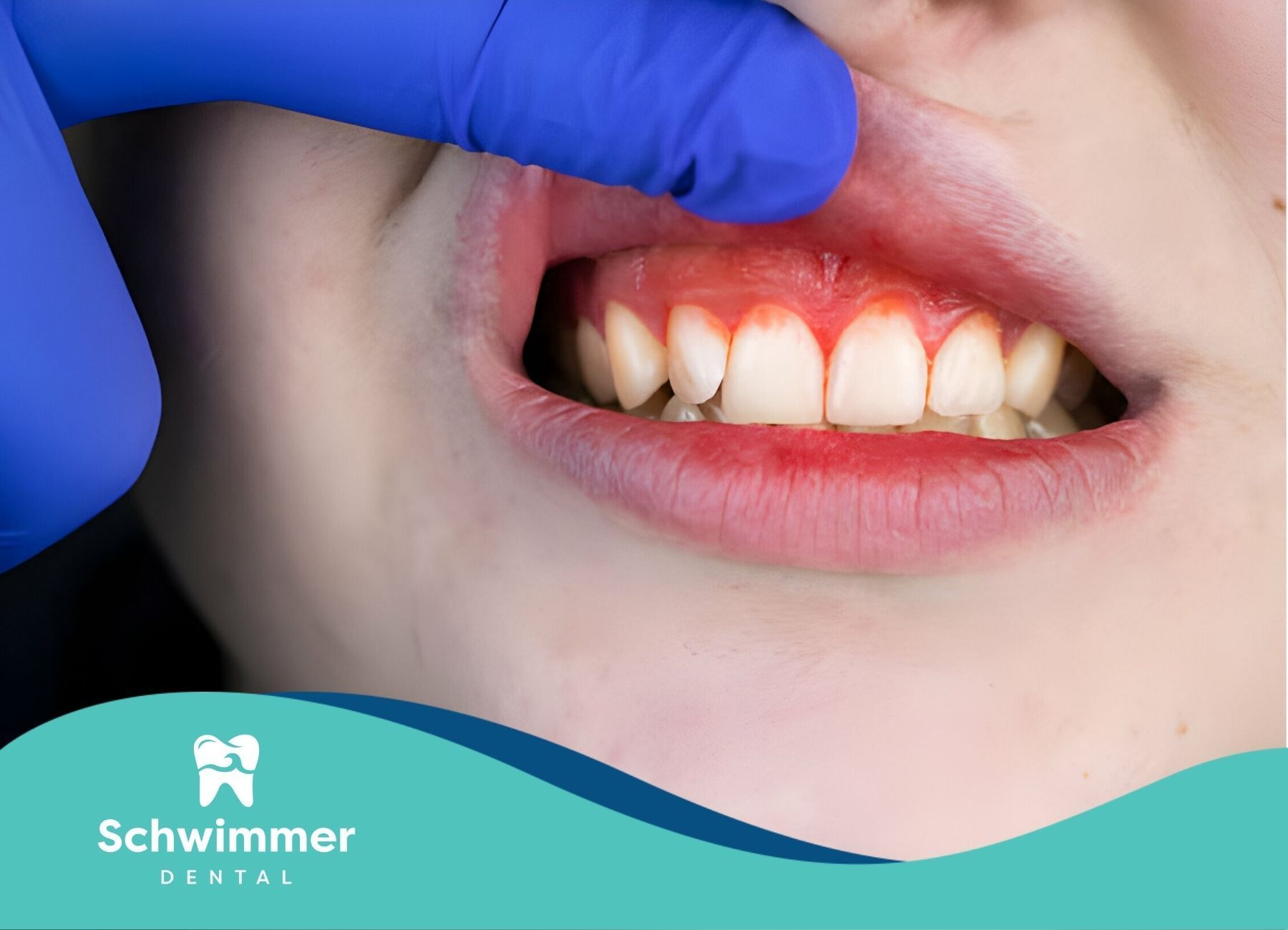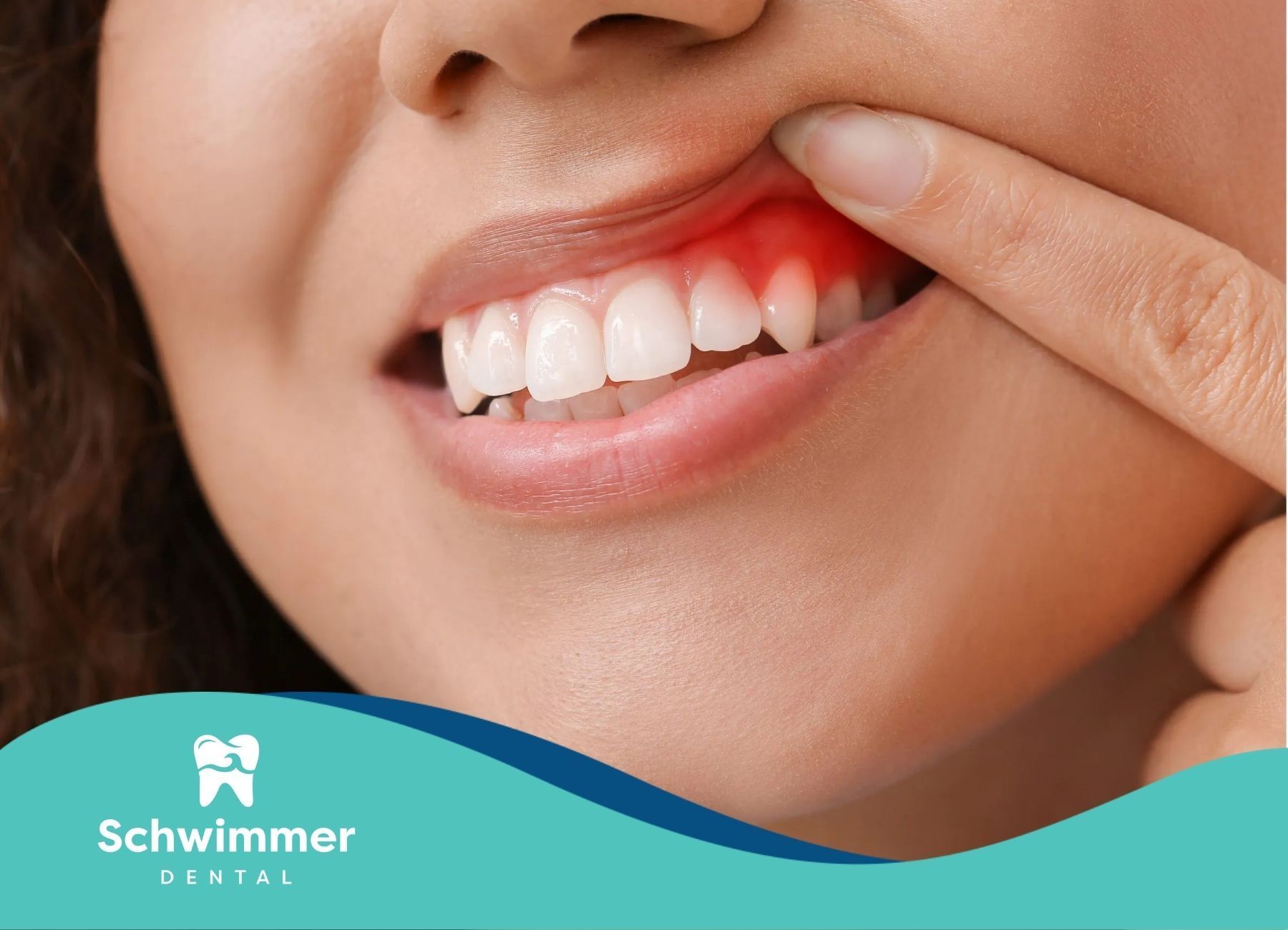Have an appointment? Complete the Intake Form
What Does a Mouth Guard Do? Exploring the Benefits
A mouth guard is a strong and flexible tool that helps protect your teeth from damage. It is useful for people who grind their teeth (bruxism) or athletes who might get hurt while playing sports. Mouth guards act like a shield. They can absorb and spread the impact force, keeping your teeth, lips, tongue, and soft tissues safe. Knowing how important mouth guards are for your dental health is key to keeping your smile bright and healthy.
Understanding What Does Mouth Guard Do?
A mouth guard is a protective cushion for your upper and lower teeth. It helps absorb shock when you get hit in the face. This reduces the chance of dental injuries like chipped or broken teeth, root damage, and losing a tooth. Mouth guards also protect the soft tissues in your mouth, like your lips, cheeks, and tongue.
They create a barrier, keeping your teeth away from these delicate areas. By cushioning your lower jaw, mouth guards provide a better bite surface. This also lowers the risk of jaw injuries, such as fractures or dislocations. This is very important in contact sports or activities where falls happen often.
The role of mouth guards in dental health
The American Dental Association (ADA) advises that both kids and adults should wear mouthguards while playing sports or doing activities that could hurt their mouths. Traumatic dental injuries can lead to long-term problems, including pain, changes in appearance, and expensive dental treatments.
Mouthguards are very important for stopping these injuries. They act like shock absorbers and lessen the force on teeth and nearby areas. When someone gets hit in the face, a good mouthguard spreads the force over a bigger area. This helps to lower the chance of tooth damage.
Mouth guards also keep the upper and lower teeth apart, which helps avoid cuts to the tongue, lips, and cheeks, which can happen from clenching or being hit suddenly.
How mouthguards prevent Sports injuries
Contact sports, like football, rugby, ice hockey, and field hockey, have a high chance of causing injuries to the mouth and face. A mouthguard is very important. It helps protect the mouth and cuts down the injuries from these sports.
A mouth guard acts as a cushion. It not only protects the teeth but also the jaw. This lowers the chance of getting fractures and dislocations. Some studies even say that a mouthguard might help lower the risk of concussions. It absorbs shocks and reduces the impact on the base of the skull.
More research can help us learn how much mouthguards can prevent concussions. Still, the benefits of mouthguards in lowering the risk of injuries in sports are clear.
Different Types of Mouth Guards and Their Uses
When you need to choose a mouthguard, there are many options to pick from. Each kind has its good sides and bad sides. Knowing the differences can help you decide which one works best for you and how much protection you need.
You can find ready-to-use, stock mouthguards or get one made just for you. There is a choice that will fit your lifestyle and budget.
Stock vs. Custom-made: Which is right for you?
Stock mouthguards are easy to use. They come pre-formed and ready to wear, making them the cheapest option. However, they do not fit very well. They can feel bulky and uncomfortable, making it hard to breathe and talk. In contrast, boil-and-bite mouthguards are made from thermoplastic material. This type of mouth guard softens in hot water and molds to the shape of your teeth, giving you a better fit.
For the most comfort and security, a custom mouth guard from your dentist is the best choice. These mouthguards are made from impressions of your teeth. This ensures a perfect fit that improves comfort and provides better protection. While they cost more, custom-made mouthguards offer the best customization and effectiveness.
In the end, the right type of mouth guard for you will depend on your needs, budget, and how much protection you need. Athletes in high-impact sports should consider custom-made mouthguards for the best fit and protection.
Mouth guards are essential for protecting your teeth during sports or from nighttime grinding, preserving your smile and oral health. If you’re searching for orthodontists near me, schedule a consultation today to find the right mouthguard for your needs and safeguard your smile!
Specialized mouth guards for braces and sleep apnea
Mouth guards are important for protecting teeth during sports. They are also made for special needs, like wearing braces or dealing with sleep apnea. For people with braces, a mouth guard is very important. It prevents damage to the brackets, wires, and soft tissues if there is an impact during sports.
Mouth guards made for braces are usually softer and have a deeper design to fit around the brackets and wires. This makes them comfortable and secure. Those who struggle with sleep apnea can also benefit from special mouth guards. These custom-made guards help move the lower jaw a bit forward. This keeps the airway open and helps reduce or stop snoring and sleep apnea episodes.
Benefits and Risks of Using a Mouth Guard
Wearing a mouth guard has many benefits beyond keeping your teeth safe in sports. Night guards are very important for people with bruxism or teeth grinding. They help protect against problems caused by clenching and grinding, which can wear down teeth, cause jaw pain and headaches, and even lead to TMJ disorders.
Mouthguards are usually safe and work well, but if they don’t fit right, they could worsen dental problems or cause pain. A bad fit may lead to jaw pain, sore gums, and trouble speaking or breathing. That is why it is important to find a mouthguard that fits well. If you feel any pain or have problems while using it, you should talk to your dentist.
How to Care for a Mouth Guard
Proper care and maintenance of your mouthguard are very important. This helps it last longer and works well to protect your teeth. Make sure to rinse your mouthguard with cool water or mouthwash before and after using it. This will help remove debris or bacteria.
To keep it hygienic, you should also clean it regularly with a toothbrush and toothpaste. When you are not using your mouthguard, store it in a container that lets air flow. This will help it dry out and stop bacteria and mold from growing.
Check your mouth guard often for any signs of wear,r like cracks, tears, or changes in shape. If you see any damage, replace your mouth guard quickly to keep it effective. Lastly, keep it out of the reach of pets. They might think it is a chew toy, which could damage the appliance or make them sick from swallowing pieces.
Conclusion
In conclusion, understanding mental health is very important for your overall well-being. By making mental health a priority and following healthy habits, you can greatly improve your mental wellness. Some good habits include having a regular sleep schedule, eating well, doing therapeutic activities, and developing a positive mindset. Taking care of your mental health shows strength, not weakness. It is a step towards self-care and self-improvement. Let’s work together to build a supportive space that raises awareness and understanding of mental health.
At Schwimmer Dental, we prioritize protecting your smile with custom-fit mouthguards designed for comfort and effectiveness. As the best dental provider clinic in New Jersey, we help safeguard your teeth from sports injuries, grinding, and other risks. Ready to take the next step in protecting your oral health? Contact us today to explore the benefits of personalized mouthguards!
Frequently Asked Questions
How do you know you need a mouthguard?
If you play sports, especially contact sports, or if you have signs of bruxism like jaw pain, headaches, or teeth grinding, you should speak with your dentist. They can help you decide if a mouth guard is a good choice for you.
Who should wear a mouthguard regularly?
Athletes who take part in contact sports, like boxing, wrestling, hockey, and football, should wear mouthguards. They help protect your mouth and teeth. Even athletes in non-contact sports, like gymnastics, can gain from using them.
Can a mouthguard improve sleep quality?
Yes, some mouthguards are made to help people who have mild sleep apnea and snoring. They adjust the position of your jaw. This helps keep your airway open.
How often should you replace your mouthguard?
It's a good idea to change your mouthguard every 6 to 12 months. You should replace it sooner if you see it is wearing out a lot. Your dentist can help you decide when to get a new one based on how you use it.
Need Assistance? We’re Here to Help
We are dedicated to enhancing your dental health and well-being.
We provide personalized dental care solutions for a confident, healthy smile.
Contact us today for Professional Dental Care.

Our caring staff will help you feel relaxed and comfortable in our state of the art office. We respect your time and pledge to deliver prompt service, backed by the latest knowledge, techniques, and technology.
Email: Office@schwimmerdental.com
Tel: (848) 294-2385
Fax: (732) 899-3347
Address: 1115 Arnold Ave,
Point Pleasant, NJ, 08742
Schwimmer Dental – Website by CWS


